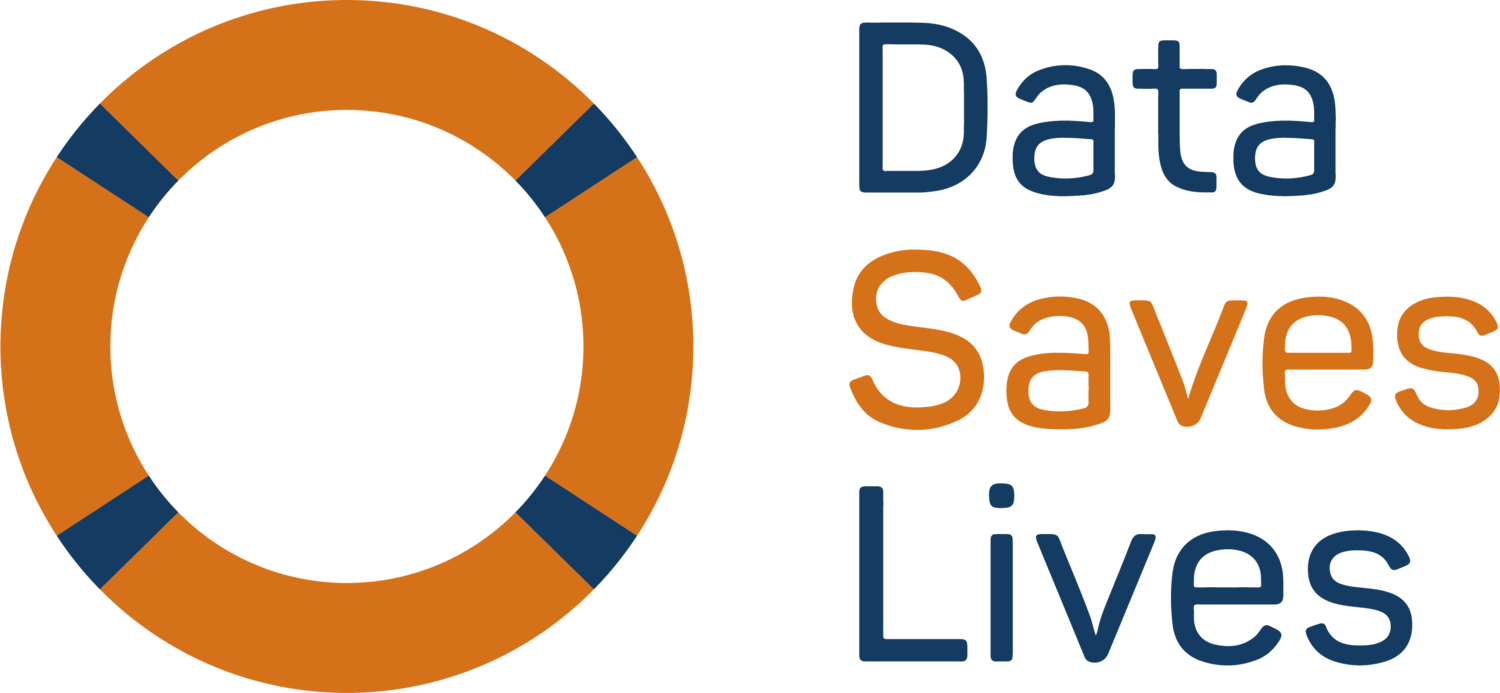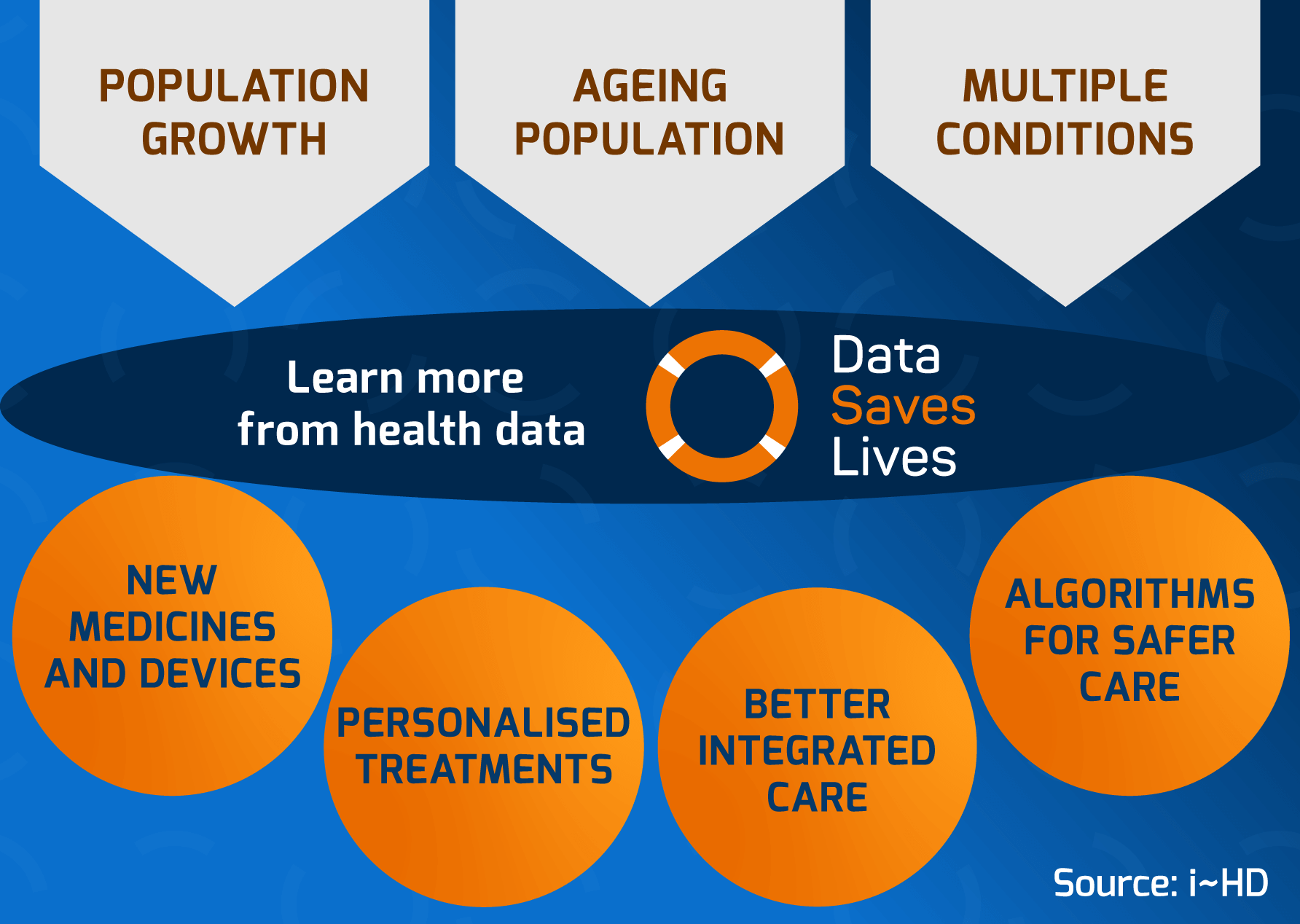Why is health data important?
Public health could be dramatically transformed by data science. Healthcare systems are increasingly challenged by growing and ageing populations who are living with more chronic disease. More effective and smarter medicine is needed to deliver better care to patients.
The challenge is to deliver this within the same healthcare budgets. New opportunities are arising for treatment through genetics, and better decision making is possible using algorithms and artificial intelligence. Learning more from health data can support these changes and help achieve better care in a cost-efficient manner.
Benefits for…
… Patients
When health providers have access to a patient’s up-to-date health data, they can provide more efficient, higher quality, safer and more personalised care and care coordination.
Patients looking at their own health data gain insight into how their health is evolving over time. They will be more health literate and empowered, allowing them to adapt their lifestyle more easily, which has a positive impact on their care outcomes and quality of life. Moreover, they will better interact with their health and care professionals.
Health data provided to scientific research will speed up the development of new medical products and treatments for individuals who need them.
… Healthcare systems
Organisations working with health data are developing many vitally needed healthcare improvements that:
Identify risk factors and speed up diagnosis.
Identify pathways in disease transmission, thus preventing diseases or conditions.
Predict outcomes and increase the effectiveness of treatments.
Improve the quality and safety of treatments.
Disseminate knowledge.
Enhance public health strategy.
… Healthcare providers
Individual health and care professionals and provider organisations can use health data to:
Redesign better care pathways.
Improve patient care.
Gain insights for strategic planning and organisational quality improvement.
Utilise healthcare resources more efficiently.
Participate in more clinical research.
… Medical research
Health data can support research organisations and scientific associations to develop new treatments and devices, such as:
A new drug to help tackle a cancer that is difficult to treat, developed by a pharmaceutical company.
An infusion pump that delivers a controlled dose of medication to somebody continuously while they are at work or home, developed by a medical device manufacturer.
A smart monitoring system that gives the patient an alert on their mobile phone when a blood measurement needs urgent attention, developed by a health software company.
A better way to support patients with advanced dementia in their home, pioneered by a social services organisation.

